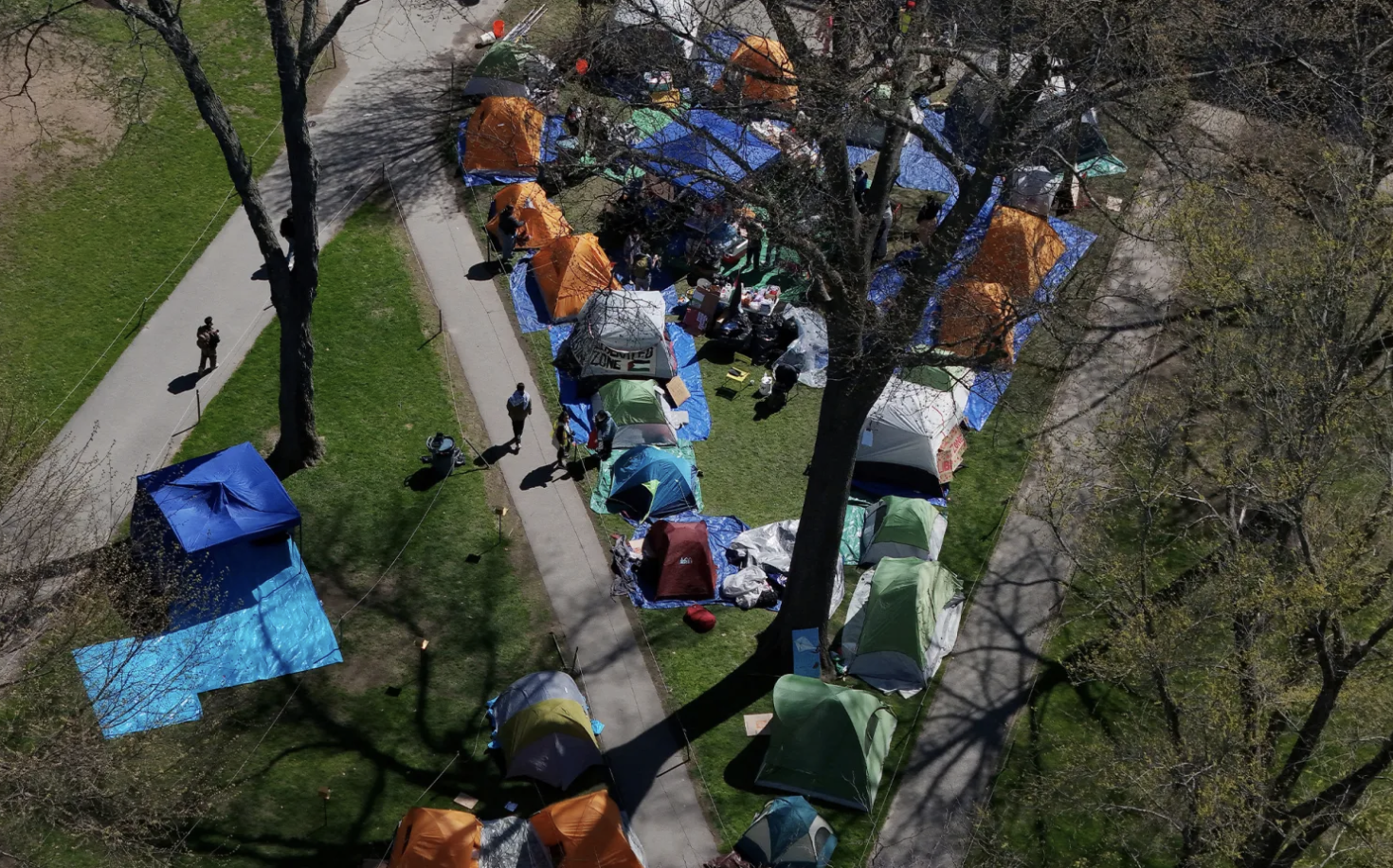By: Zach Kessel – nationalreview.com –
Harvard University will begin reinstating student protesters who have been “placed on involuntary leaves of absence” and enter discussions about the school’s endowment as part of an agreement between university administrators and anti-Israel encampment organizers, Harvard’s interim president announced in a letter on Tuesday.
“Now that the area is being cleared and in line with the conversation I had with students last week, I will facilitate a meeting with the chair of the Corporation Committee on Shareholder Responsibility and other University officials to address questions about the endowment,” interim president Alan Garber wrote in a message sent just over a week before Harvard’s commencement ceremony. “And, in keeping with my commitment to ongoing and reasoned dialogue, the dean of the Faculty of Arts and Sciences and I will meet with students to hear their perspectives on academic matters related to longstanding conflicts in the Middle East.”
Garber wrote that he understands the “profound grief” that many Harvard students, faculty, and staff feel over the war between Israel and Hamas, and he pitched his agreement with encampment organizers as a step toward a healthy climate of free expression on campus.
“There will continue to be deep disagreements and strongly felt emotions as we experience pain and distress over events in the wider world,” Garber wrote. “Now more than ever, it is crucial to do what we do at our best, creating conditions for true dialogue, modeling ways to build understanding, empathy, and trust, and pursuing constructive change anchored in the rights and responsibilities we share.”
The entity with which the Harvard administration negotiated was Harvard Out of Occupied Palestine, which describes itself as “a coalition of Harvard students fighting for divestment and a free Palestine.” That organization issued a statement on its Instagram page on Tuesday with the caption “Harvard Beware: The Liberated Zone is Everywhere.”
“We built the Liberated Zone in Harvard Yard as a model of the world we want to see: one that proudly affirms Palestinian liberation, rather than elimination,” the organizers wrote. “Every day we sustained the encampment — beyond the last day of classes, finals week, move-out — has been a day where we strengthened our organizing capacity, built networks of solidarity, and forced the question of Palestine on an institution that has historically refused it.”
The organizers continued, clarifying that, “as a pre-condition for decamping, administration will retract suspensions” and that the university “offered us meetings regarding disclosure and divestment with members of the Harvard Management Company and ‘conversations’ regarding the establishment of a Center for Palestine Studies at Harvard.”
Despite the concessions, the organizers are not satisfied.
“We are under no illusions: we do not believe these meetings are divestment wins. These side-deals are intended to pacify us away from full disclosure & divestment. Rest assured, they will not,” the statement read. “We do not measure the success of our encampment in meetings, but rather in organizing capacity and consciousness. The Harvard Liberated Zone ruptured our understanding of what we believed to be possible at an institution that serves as the rotten heart of a dying empire. It brought the student intifada to a school that trembles at the very word. And it grew our organizing power such that we can only come back stronger in our fight for Palestine.”
Garber — who assumed his position as Harvard’s interim president in January after Claudine Gay’s resignation — is not the first university leader to offer concessions to encampment organizers. At institutions like Brown, Northwestern, and Rutgers universities, administrators have either pledged to create special programs for Palestinians and anti-Israel activists or allow student activists oversight in the investment process.
To see this article in its entirety and to subscribe to others like it, please choose to read more.
 Listen Online
Listen Online Watch Online
Watch Online Find a Station in Your Area
Find a Station in Your Area








 Listen Now
Listen Now Watch Online
Watch Online
